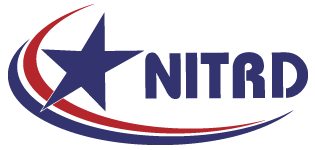Logistics
- Event: Data Sharing and Metadata Curation: Obstacles and Strategies: Future strategies for managing scientific data and metadata for basic and applied research
- Date: May 29, 2013
- Location: National Science Foundation, Arlington, VA
- Participant List
Description
The purpose of this workshop was to have focused discussions on future strategies for managing scientific data and metadata for basic and applied research; specifically,
- (a) how to better enable, encourage, and realize sharing of data, both across disciplinary divides and between “micro-silos” within research domains,
- (b) how to acquire, manage, and curate metadata in order to ensure usability and comprehensibility of data over time and between disciplines, and
- (c) how to enable data discovery, access, and analysis across distributed, public, and private data centers.
Metadata Questions to Consider
- What metadata, and what kinds of metadata management, are needed to enable re-use of data, both across domains and across silos within domains?
- How can we incentivize researchers and providers to curate their data, organize it with useful metadata, and make it publicly available?
- Maximum impact of data occurs when analytics make use of all available relevant data; how can analytics developers be challenged to make this standard practice?
- What are the data ownership and personal identifiable information issues (obstacles/solutions) that can be addressed in this context?
- What are the top two data/metadata problems you would like to solve?
Agenda
Welcome and Introduction
Mark Suskin, NSF
Practitioners’ Perspectives
Moderated by Robert Chadduck, NSF
- “DataOne (DataNet Observational Network for the Earth)”, Rebecca Koskela, University of New Mexico, slides, video
- “DFC/iRODS (DataNet Federation Consortium/innovative rules oriented data system)”, Reagan Moore and Mary Whitton, RENCI, slides, video
- “NIST/ITL/MML (NIST Information Technology Laboratory and Material Measurement Lab)”, Mary Brady, Ram Sriram, NIST ITL, and Jim Warren, Carelyn Campbell, NIST MML, slides, video
Open Discussion – Practitioners’ Perspectives
Moderated by Robert Chadduck
Trans-disciplinary Community Perspectives
Moderated by Alan Hall, NOAA, and Jon Petters, AAAS Fellow at DOE
Open Discussion – Community Perspectives
Alan Hall and Jon Petters
Open Discussion: Barriers and Opportunities
Moderated by Peter Lyster, NIH, and Mark Suskin
Closing
“Summary and Wrap-up”, Tom Statler, NSF

